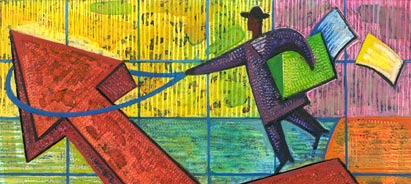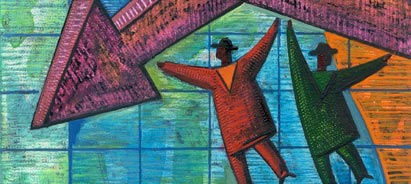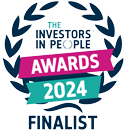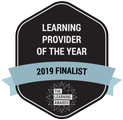
CBT Plus, for Anger and Violence.
'CBT Plus, for Anger and Violence' is a 3-day course from the Association for Psychological Therapies (APT), a leading provider of accredited courses for professionals working in mental health and related areas.
It is the only course on this topic that is APT-accredited and also gives you access to APT’s relevant downloadable resources for use post-course. The course is available for teams/organizations and can be attended face-to-face or online.
Executive Summary:
Anger is a major problem for those concerned, those around them and the professionals trying to help. It can wreck the enjoyment potential of people's lives, lead to serious relationship break-ups and, in extreme cases, serious criminal offenses. Trying to intervene can be frustrating and worrying.
This acclaimed course is based on the only anger-management book on the “Books on Prescription” scheme (UK), namely Overcoming Anger and Irritability (Constable and Robinson) and written by the same author (William Davies). The course aims to provide you with the most effective psychological interventions to help angry, irritable and violent people to change.
The course covers:
- The Nature of anger, irritability and violence, and their effects.
- People who don't believe their anger is a problem.
- Case-conceptualisation, especially deciding if anger and violence should form the main focus of the treatment, or if they are part of a broader problem e.g. depression, anxiety or PTSD.
- How to help someone develop insight; some people who are relatively unaware of their anger.
- How to help someone develop empathy for the recipient of their anger. Why this is important and how you can achieve it.
- What when the person feels that to be angry is 'how they are'? And what when they say it is 'part of the job'.
- The broader picture. In some situations others reinforce anger; the 'system' is maintaining it. How do you review the system?
- An overall model for understanding anger, irritability and violence.
Interventions:
- Motivating the unmotivated. There is very little that can be done to help someone who isn't motivated to change, and this is especially pertinent in anger.
- The biological factors which can massively increase a person's irritability and anger. Why it is important to address these well, and early on.
- Behavioral factors and interventions. How some minor behavioral 'ploys' can have effects out of all proportion to their size, while other times little short of major life reconstruction will do.
- 'First Aid': Self-talk, imagery and behavior that can help the person withstand anger-provoking situations. 'Counting to 10': while not sufficient in its own right this is an example of an important class of interventions.
- Increasing feelings of self-efficacy by building on Success. Many angry people have strategies that work well for them and can be expanded into recognized and effective interventions.
- Relaxation training. Used well – and using the best techniques - this can be very effective.
- Benign humor. Many angry people also have a keen sense of humor that you can use to help them. Use of humor also has major traps. We examine both.
- Cognitive Behavioral. Considerable success has been reported using CBT methods. And there are key skills to acquire if this is to be used effectively.
- Extreme anger and planned violence caused by dwelling and brooding. How to disrupt and divert this effectively.
- An Overview of working with irritable and angry people in the most effective ways, including choosing methods to match the person, and how you can obtain support.
What this course will do for you:
- You will know about the nature of anger and irritability, how destructive they are, and how important it is to be able to treat them. You will have an overall model for understanding them.
- You will be able to differentiate 'pure' anger and irritability as opposed to when they are a reflection of problems such as depression, anxiety, PTSD etc. You will know how to respond accordingly.
- You will be aware that it is necessary for angry people to be well motivated if they are to stand a chance of changing, and you will know how to achieve that.
- You will know about the biological factors that can massively increase a person's irritability and anger, and be able to address them well, and early.
- You will know how some minor behavioral 'ploys' can have effects out of all proportion to their size, while other times little short of major life reconstruction will do.
- You will know about Self-talk, imagery, metaphors and behavior that can help the person withstand anger-provoking situations.
- You will be able to employ a radical 'building on Success' approach to avoid dwelling on provocative situations, build self-efficacy and overwhelm anger with success.
- You will know about the best Relaxation techniques to use, and how effective these can be.
- You will know about the key 'higher order' CBT strategies that are effective with anger.
- You will be able to address case studies - including case studies of extreme anger and planned violence – and plan effective interventions.
- Overall, you will be more knowledgeable about anger, irritability and violence, and more effective in its treatment.
What you receive as a result of attending the training:
You will be registered as having attended the course, thereby gaining APT's Level 1 accreditation, and receive a certificate to this effect. The accreditation gives you access to online resources associated with the course and access to the online exam if you wish to uprate your APT accreditation to Level 2.
Your registration lasts indefinitely, whilst your accreditation lasts for 3 years from the date of completion and is renewable.
Your accreditation is given value by the fact of over 150,000 people having attended APT training. See APT accreditation for full details.
Booking this training is easy...Booking Options... for individuals or small groups For teams and organizations:Option 1: Online Live and Exclusive course: Live and interactive online course, delivered via Zoom or Teams exclusively for your team or organization. Price: $8,230 + GST/HST for a group of up to 15 people (price includes a workbook for every delegate, posted to one address, or a PDF version can be provided). Extra delegates $540 + GST/HST per person. Option 2: Face-to-Face Onsite course: We bring the course and tutor to you, for an all-inclusive fee. Price: $13,150 + GST/HST and tutor travel and accomodation, for a group of up to 15 people (price includes a workbook for every delegate, posted to one address, or a PDF version can be provided). Extra delegates $855 + GST/HST per person. Option 3: 'Train the Trainer': If you or a colleague are a senior professional (e.g. consultant psychologist) and have a talent for communication and teaching, then you are welcome to apply to become an APT-accredited tutor. You could then tutor the course in your own organization, under license. This is not only a highly appropriate use of senior professionals, but it also saves your organization the tutor-component of the fee each time you run it or your chosen modules (50% of the 'Online Live and Exclusive' fee, regardless of whether the course is held Face-to-Face or Online). To see the full benefits of this and to see whether you are eligible, click the button:
|
|
Quick Links

Feedback Ratings.
We continuously monitor the quality of our training by obtaining feedback on the two key scales of relevance and presentation from every course delegate. Below are the average ratings for the last ten runnings of this course, which are updated periodically.
Face-to-Face
Presentation: 98%
Relevance: 97%

Reviews.
APT prides itself on the feedback we receive about our courses. Below are just some of the great comments the 'CBT Plus, for Anger and Violence' course has received.
"This was hands down the best training course I've done. The skills taught will be very useful in dealing with angry clients, but also will be easily re-deployed in other areas as well. The instructor came with loads of relevant experience and case studies which made the whole thing that much more interesting. Fantastic course."
"Best course I have ever attended, will greatly benefit from having learnt about how to overcome and anger and irritability. No criticisms whatsoever."


